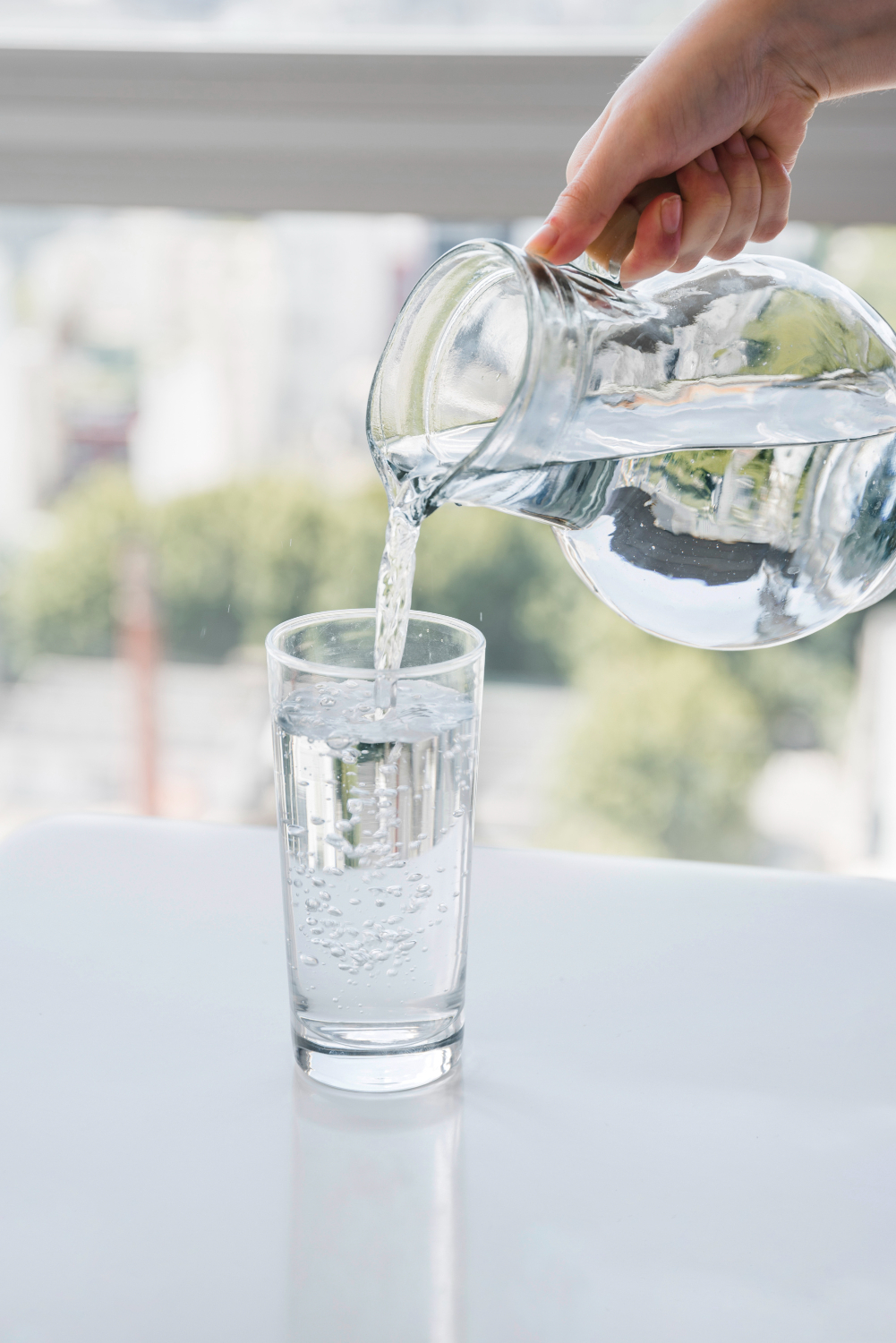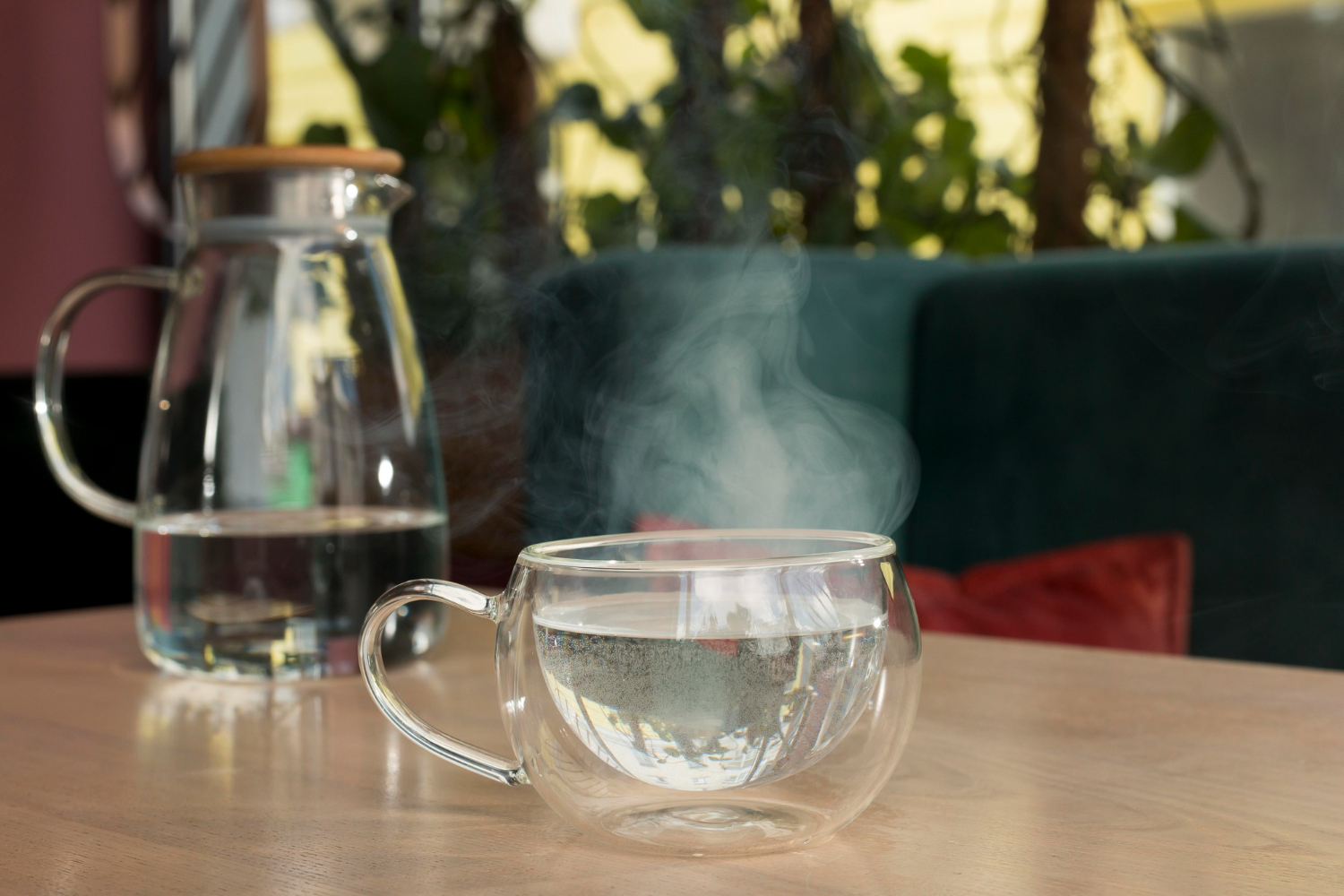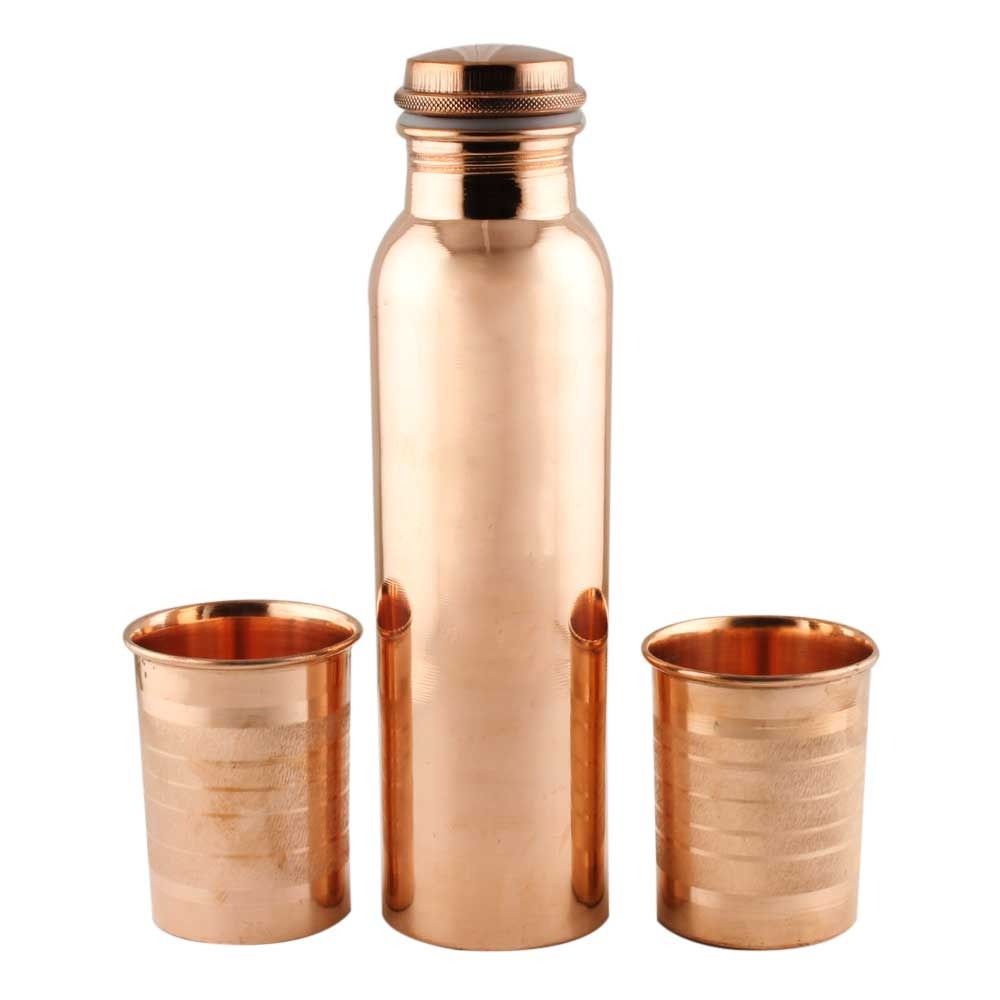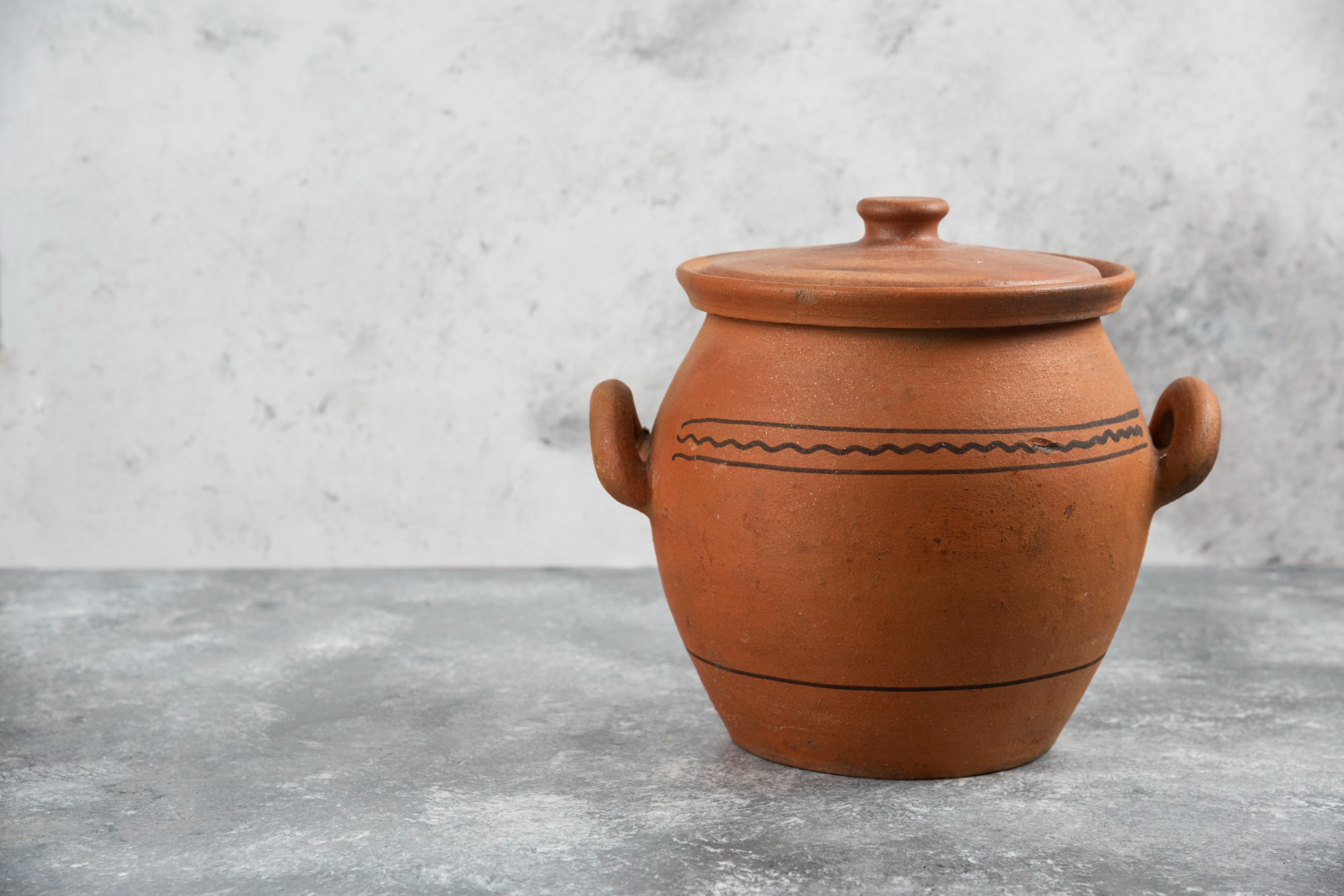Did you know your body is made up of nearly 70% water, yet most of us walk around dehydrated without even realizing it?
Our bodies are made up of trillions of cells, and each cell depends on water to function optimally. Yet, dehydration is a massive global problem.
It’s not just about feeling thirsty or having dry skin—at a deeper level, dehydration disrupts cellular function, leading to stress, inflammation, and even chronic disease.
We often focus on superfoods, supplements, and exercise routines, but what about water?
Drinking water is so basic that it’s almost ignored, yet it plays a critical role in everything from digestion to energy production and disease prevention.
Whether you’re an athlete, someone recovering from an illness, or just looking to maintain optimal health, understanding cellular hydration is key to unlocking better well-being.
Let’s explore why cellular hydration matters more than you think.

First, let’s understand what happens when you are dehydrated.
Many people assume they’re drinking enough water just because they sip on it throughout the day. But the reality? Most don’t even reach five to six glasses a day. Dehydration is a widespread issue—even among those who are otherwise health-conscious.
Several factors contribute to dehydration:
- Vomiting, diarrhea, or illness: These conditions cause rapid fluid loss.
- Medications and supplements: Diuretics and certain medications make the body lose water faster.
- Caffeine overconsumption: Drinking excessive coffee or tea without balancing it with water can dehydrate the body.
- Air-conditioned environments: These make us less likely to feel thirsty, leading to reduced water intake.
- Exercise and sweating: Even if you’re hydrating during workouts, you need additional water beyond that.
When dehydration sets in, the body loses essential minerals like sodium, potassium, and magnesium. But it also creates a state of distress at the cellular level.
The body enters fight-or-flight mode, increasing cortisol and inflammation.
We all assume we’re drinking enough water, but are we really?
Let me share my water tracking experiment with you…
Sometime back, I decided to track my water intake, and what I discovered shocked me!
At the start of the week, I began keeping track of every glass of water I drank. Given my active lifestyle, my target was 12 to 14 glasses per day. For most people, a healthy range is between 8 to 12 glasses, unless your doctor advises otherwise. I assumed I was hitting my target effortlessly.
By 4 PM that day, I had consumed only seven glasses—far less than I thought. Tuesday was the same story. It was a wake-up call: we often think we’re drinking enough, but when we track it, we realize we’re falling short.
So, why does hydration matter more than you think?
Even a 1% drop in hydration affects every function in the body. Every single cell, of which we have trillions, relies on water to function properly.

Dehydration can lead to:
- Fatigue and sluggishness
- Headaches and migraines
- Constipation and poor digestion
- Water retention (yes, drinking too little can make your body hold on to excess water!)
- Dry skin, brittle hair, and acne
- Reduced ability to lose weight
Over time, chronic dehydration contributes to lifestyle diseases, sluggish metabolism, and even impaired cognitive function.
Our cells require water for a range of critical functions…
- Nutrient transport: Water carries oxygen and nutrients to cells while removing waste.
- Energy production: Hydrated cells produce ATP (energy) more efficiently.
- bThe kidneys and liver need adequate water to flush out toxins.
- Temperature regulation: Sweating and circulation depend on proper hydration.
- Cell communication: Electrolytes dissolved in water help nerve signaling and muscle contraction.
Without enough water, cells become less efficient. This can manifest as a weakened immune system.
A few key health benefits of staying hydrated:
- Improved brain function: Dehydration affects mood, concentration, and cognitive function. Even mild dehydration can lead to headaches and impaired mental clarity.
- Enhanced physical performance: Muscles require hydration to contract efficiently. Dehydration leads to muscle fatigue, cramps, and reduced endurance.
- Better digestion and cleansing: Water helps break down food and keeps digestion smooth, preventing constipation. It also supports kidney function, ensuring toxins are flushed out efficiently.
- Stronger immunity: Hydration supports the lymphatic system, which plays a key role in immune function. Proper hydration helps the body fight infections and heal faster.
- Healthier skin and anti-aging: Water maintains skin elasticity and helps prevent premature aging. Dehydration leads to dryness, wrinkles, and dullness.
- Regulated blood circulation and heart health: Hydration keeps blood fluid and prevents sticky blood, reducing the risk of clot formation, high blood pressure, and heart disease.
- For those undergoing chemotherapy, radiation, or heavy medication treatments: Hydration is even more critical. Water acts as a natural cleanser, helping flush out toxins through the liver and kidneys. A well-hydrated body recovers faster and functions better.
Here’s a real story of a woman who beat migraines with water!
A few years ago, a 42-year-old woman came to me suffering from severe migraines. Her blood work was perfect—vitamin B12, D3, magnesium, and iron levels were all normal. She had no vertigo, no sleep issues, and no digestive concerns. But she was drinking only three glasses of water a day.
I asked her to track her water intake and increase it to 10 glasses daily. Within seven days, her migraines vanished.
While not all migraines are caused by dehydration, many are. Water is the simplest, most powerful, and often most ignored remedy. Make sure to consult your doctor before making any changes to your lifestyle, if you’re taking any medications for migraine.
With that being said, let me talk about an ancient practice that has been backed by modern science and is known to rejuvenate the body, cleanse toxins, and even promote healing from chronic diseases.

Water Fasting…
Everything in our body operates on energy. According to leading biophysicists, the average human spends about 75% of their energy on digestion alone. This means that only 25% of energy is left for vital functions like healing, immunity, stress management, and repair.
- When the body is constantly digesting food—especially processed foods, sugar, and toxins from unhealthy eating habits—it struggles to cleanse and heal itself. This imbalance of energy is the root cause of many chronic illnesses, including diabetes, cardiovascular diseases, and even cancer.
Water fasting allows the digestive system to take a break, freeing up energy that can be redirected toward cell repair, cleansing, and overall rejuvenation.
It is a practice in which you consume only water for a minimum of 24 hours. No food, no tea, no coffee—just plain, clean water. While it may sound challenging, the rewards are incredible.
- Cellular repair & autophagy: Fasting triggers autophagy, a process where cells clean out damaged components, promoting repair and longevity.
- Improved insulin sensitivity: Helps regulate blood sugar levels by reducing insulin resistance.
- Reduced inflammation: Lowers markers of inflammation, potentially aiding in conditions like arthritis and chronic pain.
- Gut health reset: Gives the digestive system a break, allowing the gut lining to heal.
- Mental clarity & focus: Ketones produced during fasting fuel the brain, enhancing cognitive function.
- Weight loss & metabolic boost: Encourages fat burning and supports metabolism without muscle loss.
How to start water fasting (without struggle)?
If a full 24-hour fast sounds intimidating, start slow:
- Begin with 10-16 hours and gradually work up to 24 hours.
- Stay hydrated and drink plenty of water throughout the fast.
- Keep yourself busy to avoid thinking about food.
- Avoid cooking aromas that can trigger hunger pangs.
A great way to implement water fasting into your routine is to choose one day a week. For example, you can indulge in your favorite foods over the weekend but dedicate every Monday to a water fast to reset your body for the week ahead.
Disclaimer: Water fasting may not be suitable for everyone, especially those with medical conditions, pregnant or breastfeeding individuals, or those on medications. Always consult a healthcare professional before starting any fasting regimen.
Who Should Avoid Water Fasting?
While fasting has benefits, it’s not suitable for everyone. Pregnant women, individuals with eating disorders, those on medications, or people with certain health conditions should consult a doctor before trying it.
Another age-old wisdom passed down from our ancestors that has stood the test of time, and science now backs many of its benefits is…
Sipping Warm Water…
From digestion to circulation, warm water can do wonders for your overall health.

- Warm water helps your digestive system function smoothly, preventing bloating and discomfort. If you’ve ever tried washing greasy dishes with cold water, you know how difficult it is. Warm water, on the other hand, melts away the grease effortlessly. That’s exactly how it works in your digestive system, making waste removal much easier.
- When you drink warm water, your body temperature slightly rises, sometimes leading to mild sweating. This helps release toxins through the skin.
- Warm water acts as a vasodilator, meaning it helps expand blood vessels and improve circulation. This is especially beneficial for muscle recovery, joint pain, and overall relaxation.
- A warm glass of water before bedtime can help relax your nervous system, reduce stress, and promote better sleep. Many elderly people find comfort in this simple habit.
- If you suffer from colds, sinus congestion, or respiratory issues, warm water can be a game-changer. Just as steam inhalation clears mucus buildup, sipping warm water helps break down mucus, making it easier for your body to expel it through coughing or sneezing.
The only real risk of drinking warm water is if it’s too hot! Boiling water can damage your esophagus and burn your mouth, so always ensure it’s at a safe, lukewarm temperature.
How to incorporate warm water into your routine?
- Start your morning with a glass of warm water on an empty stomach.
- Sip warm water throughout the day, especially after meals.
- Have a warm glass before bed to relax and aid digestion.
- Keep a hot water kettle at your workplace or use hotel kettles while traveling.
It requires no extra effort, just a small shift in habit. Give it a try!
Now, let’s discuss where you store your water and the type of container or bottle you use.
In my video on ‘the art of drinking water,’ I emphasized avoiding plastic bottles because harmful chemicals from the packaging can leach into the water. Bisphenol A (commonly found in unbreakable plastic) and phthalates (present in flexible plastic) are known endocrine disruptors. Instead, opt for steel or glass bottles.
But there are also two more fantastic alternatives!
1. Drinking water from copper vessels:
For centuries, civilizations across the world have used copper vessels to store and drink water. Copper is an essential trace mineral required by the human body for various functions, including brain health, liver function, heart health, and immune support.
Learn more about this, here!

How do you incorporate copper water into your routine?
- Choose a copper vessel: Get a copper jug, bottle, or cup. For the best results, make sure it’s pure copper.
- Prep your vessel: When you first buy it, fill it with water for 24 hours, then discard the water and rinse well. Avoid washing with soap; simply use lemon and salt to clean it occasionally.
- Store water overnight: Fill the copper vessel with water every evening and let it sit overnight.
- Drink in the morning: In the morning, drink one to two glasses of copper-infused water on an empty stomach.
- Moderation is key: Stick to 1-2 glasses of copper water. You can have one glass in the morning, one in the afternoon, and one in the evening if needed, but avoid drinking it throughout the day.
While copper is essential, too much of it can be harmful. Overconsumption may lead to copper toxicity, which can negatively impact liver function and deplete zinc levels, affecting immunity and hormonal balance.
So, do not overdo it—use vitamin C (common sense) and start small. If it suits you, continue; if not, ditch it.
2. Drinking water from earthen pots:
These clay vessels, known as matkas, were a staple in every household before modern alternatives like plastic and glass bottles took over.
- One of the biggest advantages of earthen pots is their natural cooling ability. Clay is porous, allowing tiny amounts of water to evaporate, which in turn lowers the temperature of the stored water. Even in peak summer, the water remains refreshingly cool, without the throat irritation that sometimes comes with refrigerated water.
- Clay, being a natural product of the earth, is packed with essential minerals such as magnesium, calcium, and potassium. When water is stored in an earthen pot, these minerals slowly seep into the water, enriching it with health-boosting properties.
- This option gives you natural alkaline water. A fascinating test using a pH meter revealed that water stored in an earthen pot has a higher pH level than regular bottled or tap water. Since an alkaline body is less prone to inflammation, acidity-related digestive issues, and even conditions like cancer, making this simple switch can be highly beneficial.
- By drinking from a clay pot, you reduce exposure to these synthetic toxins and promote hormonal balance.
Choosing the right earthen pot:
Not all earthen pots are created equal. Here’s what you should look for:
- Moist exterior: A pure clay pot will always have moisture or slight dampness on the outside due to its porous nature. If your pot stays completely dry, it might be coated with chemicals or glazes that prevent proper evaporation and mineral infusion.
- Avoid glazed interiors: Some commercial clay pots have a shiny or glazed lining inside, which prevents the natural seepage of minerals into the water. Choose an unglazed, 100% natural clay pot for maximum health benefits.

How to maintain your earthen pot?
To keep your clay pot clean and fresh:
- Empty the pot every 4-5 days and place it under direct sunlight for a few hours. The sun acts as a natural purifier, eliminating any microbial buildup.
- Rinse with water, but avoid using soap or scrubbing, as harsh cleaning can strip away the natural minerals.
- If you notice any unusual odor, discard the water, sun-dry the pot, and refill it with fresh water.
Using these matkas, you can have your structured water! Structured water is water infused with natural minerals and elements that enhance its ability to hydrate the body efficiently. This type of water supports your kidneys, boosts energy levels, and improves overall cellular function.
Another way you can make a glass of structured water is…
- Add freshly squeezed lemon (if it suits you) to a glass of water: This enhances hydration, provides vitamin C, and supports digestion.
- Add a pinch of Celtic salt or Himalayan pink salt: These natural salts contain essential minerals like potassium chloride and sodium chloride, which balance electrolytes in the body.
- Optionally, add a little jaggery: If you’re an athlete, gym-goer, or someone who sweats a lot, a small amount of jaggery can provide natural sugars to replenish lost energy.
Nature has provided us with everything we need to stay healthy, but in the rush for convenience, we’ve moved away from these natural solutions.
So, how to maintain optimal hydration every day?
- Track your water intake: Instead of guessing, measure your intake. A simple way is to fill up three bottles (2.5-3 liters in total) and finish them by the end of the day.
- Don’t rely on thirst alone: By the time you feel thirsty, your body is already dehydrated. Sip water regularly throughout the day.
- Balance water with electrolytes: If you sweat a lot or exercise regularly, replenish lost minerals with coconut water, fresh juices, or electrolyte-rich foods.
- Hydrate first thing in the morning: Start your day with a glass of water before anything else to jumpstart metabolism and cleanse.
- Pair water with movement: Hydration and circulation go hand in hand. Walking after meals and staying active throughout the day help distribute water effectively to cells.
- Eat water-rich foods: Fruits and vegetables like cucumber, watermelon, oranges, and celery contribute to hydration levels.
- Balance with diuretics: If you drink coffee or tea, match each cup with a glass of water.

Take the 7-Day Water Challenge!
Starting today, challenge yourself to track your water intake for one week. Note down every glass and see if you’re truly meeting your daily goal. By making hydration a habit, you’ll experience overall better health.
Are you ready to take charge of your hydration? Start tracking today, and let’s see how much of a difference it makes!
Disclaimer: This blog is for informational purposes only and is not a substitute for professional medical advice, diagnosis, or treatment. Always consult your healthcare provider before making any changes to your hydration, nutrition, or lifestyle.
Struggling to stay hydrated and feeling sluggish?
We’re here to support YOU every step of the way.
Set up a one-on-one consultation with our integrative team for personalized solutions.
Reach out to us at 1800 102 0253 or write to us at [email protected].
- 1
- 2
- 1
- 2









